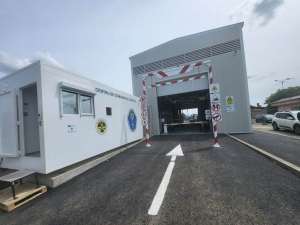• SIFs optimistic about the bank"s earnings announcement for 2009
Guy Marie Poupet was voted as chairman of the Board of Administration of BRD - Societe Generale, as part of yesterday"s General Shareholder"s Assembly, with his four year tenure set to begin on January 1st 2010. He will also take over the position of General Manager, due to Patrick Gelin giving up on both his functions.
Guy Marie Poupet yesterday said that his first objective is to keep the strategy of the bank unchanged: "The change is a natural one, has been in preparation for a long time and there won"t be any major strategic changes. The activity will continue as usual". The second goal of Mr. Poupet will be to carefully monitor risk and profitability. According to him, amid the economic crisis, watching risk will have priority, but once the turbulences have passed, the bank will need to focus on keeping a top position on the market.
The new general manager of BRD, aged 57, is a graduate of Institute for Political Studies of Paris, nad has a degree in Public Law, and has been working with Societe Generale since 1975, when he began his career as inspector.
Since 1983 he was promoted to top management positions with the group"s branches in Argentina, Senegal, the Czech Republic and Egypt.
• The Kerviel affair, one of the most difficult moments that Patrick Gelin had to face during his tenure
Patrick Gelin yesterday said he is sad to be leaving Romania, a country which he has come to know well and where he made many friends. He remembered yesterday his hardest moments during his tenure as CEO of the bank: the migration of the IT system, the switching to the new leu, the Kerviel affair.
"I can"t say the Kerviel affair was the easiest thing to handle", said Mr. Gelin.
The former head of BRD said that, in spite of the crisis, there is no question of layoffs at BRD.
• Gelin: The ability of individuals to take on debt will recover in 2-3 years
Patrick Gelin says the drop in borrowing is due to consumer loans and to the fact that individual revenues have stopped growing or even began to shrink. He said: "It will take 2-3 years before the ability of individuals to take on debt returns to its previous levels. Individuals and their ability to borrow won"t see any significant improvements before the end of 2010". Mr. Gelin feels that interest rates will remain high, at least because the Romanian state needs funding and will continue to borrow.
• Heads of the SIFs, happy with the performance of BRD in 2009
In spite of the increase in writedowns in Q3 2009, which had a strong effect on the earnings of "BRD - Groupe Societe Generale", the heads of the five financial investment companies (SIF) - which hold stakes in the bank - are happy with BRD"s 2009 results, awaiting optimistically the earnings announcements for the last quarter of 2009.
Costel Ceocea, the chairman of SIF2 "Moldova", said for Bursa, that the profitability ratios of the bank are good and even if the bank"s earnings won"t match those of 2008, in his opinion the bank weathered the financial crisis rather successfully.
"We have a good cooperation with people at BRD, with the bank serving as the depositary of SIF Moldova, by distributing the dividends of the fund and some of the investments made by SIF2 as part of the bank"s monetary funds", said Mr. Ceocea.
Even though the bank kept its loan impairment charges below those of other banks in the first semester, thus making a bigger than expected profit, in the third quarter impairment charges increased significantly, to 673 million lei.
"We are, of course, concerned by the rise in bad loans, but we don"t have any reasons to be overly concerned so far", Mr. Ceocea said, adding that the bank"s Q3 results were good.
BRD Soc-Gen did not issue any details on the evolution of underperforming loans, but said it "in this respect it still does better than the average of the banking system".
Just like Costel Ceocea, Petre Pavel Szel, the chairman of SIF "Muntenia", said he was very pleased by his cooperation with the staff of BRD, led by Mr. Patrick Gelin, and hopes this situation will persist in the future.
"Even though results of BRD are weaker than last year, I think it could have been worse", said Mr. Szel, referring to the evolution of the bank"s results.
According to analysts, even though net risk costs have increased significantly, remain within limits which are acceptable under the current context.
"The cost of impairment charges for Q3 2009, increased 65% over Q2 2009 and is 42% greater than we have anticipated", considers Florin Ilie, the head of the Analysis department of "ING Bank".
Net banking revenues (interests, commissions and financial operations) of the company reached 2.52 billion lei, rising 18% over September 30th, 2008.
Assets of BRD decreased 2.7% in the first nine months of 2009, from 49.2 billion lei at the end of 2008, to 47.9 billion lei.
The bank issued loans worth 33 billion lei, up 8% over September 30, 2008, out of which loans worth 15.8 billion lei were issued to individuals, up 4% YOY.
Corporate loans increased 12% over the last year, to 17.2 billion lei, according to the communiqué by BRD.
At the end of Q4, the bank"s ROE was 21.6%, whereas the cost/revenue ratio remained at 42.1%.
Shares of "BRD-Groupe Société Générale" began trading on the Bucharest Stock Exchange on January 15th 2001, with the symbol BRD. Shares of BRD currently trade at 13.2 lei, which puts the company"s capitalization at 9.2 billion lei.



























































